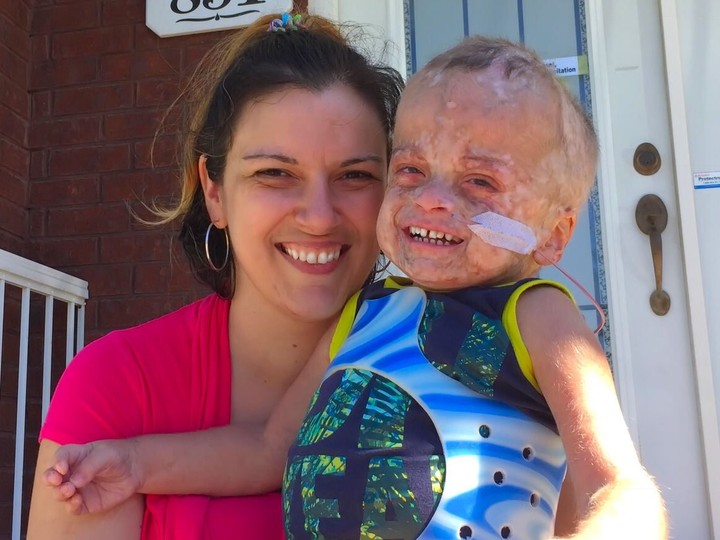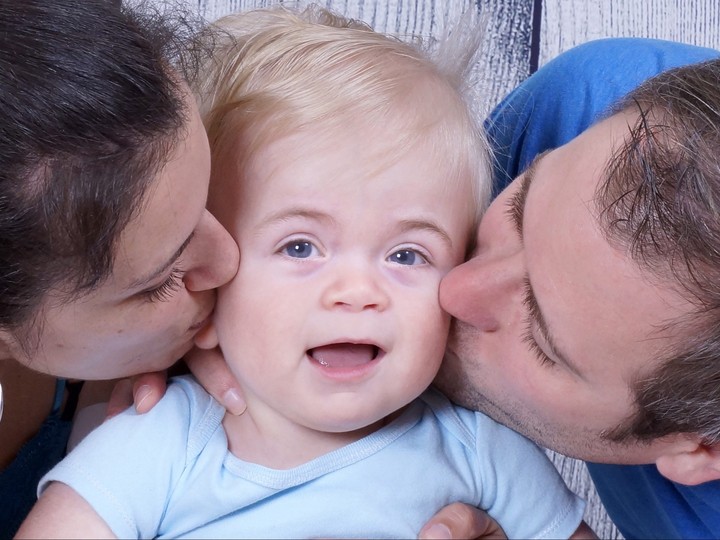the reason why the nurse was asking us all those questions [at the mri] that were completely unrelated to the mri was that she had worked in genetics before. so when she saw my son, she recognized the facial features that are characteristics of hurler. that’s why she told the radiologist they couldn’t do the mri, because for these kids, being put under anesthesia is really dangerous for them. and since he was a year old, he needed to be put to sleep for the mri.
after further tests, hurler syndrome was diagnosed about a month later. so yes, it was totally a coincidence.
alex oliver was diagnosed with mucopolysaccharidoses type 1-h, also known as hurler syndrome, a rare genetic disorder. supplied
what is the treatment for hurler syndrome?
for all mps diseases, there’s no cure. but for hurler, there are two treatments. one is an enzyme replacement therapy, and then there is the golden standard which is stem cells.
what were you thinking when you were told that your son might have this genetic disorder?
we didn’t really understand because we didn’t know that we were carriers and in both our families there are no cases of mps.
[it can] be frightening because it’s a degenerative disease, and usually patients don’t live past their teen years. it was really unexpected — plus, he was quite old already to [be diagnosed].
we were kind of relieved, in a way, that there was some kind of treatment, even though it only [slows] the progression — it’s not a cure. he was already 21 months old, which is quite old to have a transplant, and the geneticist really wanted him to be transplanted before two years old. so we had three months of running around to all these appointments because his doctor wanted to have a baseline for everything in his body to help ensure that the transplant would [have a good outcome]. personally, i didn’t have much time to really think about what was going on because every day we were at the hospital.
 10 minute read
10 minute read











